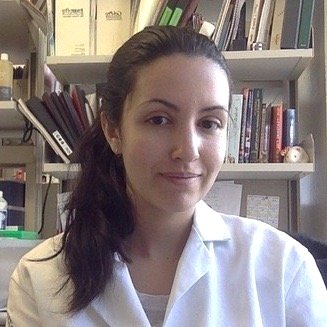Funding Summary
Based on previous research, Dr. Azevedo believes that disrupted acetylcholine (ACh) signaling in the brain may be a key factor contributing to the symptoms of PWS. In this project, she will study how the loss of the PWS-associated gene, MAGEL2, affects ACh activity in a certain part of the brain (lateral septum), and whether boosting ACh can improve behavior in PWS mice.
Dr. Theresa Strong, Director of Research Programs, shares details on this project in this short video clip.
Lay Abstract
Prader–Willi syndrome (PWS) is a challenging syndrome characterized by uncontrollable overeating, weight gain, social and learning disabilities. One of the main genetic causes of PWS is the loss of a gene called MAGEL2 (MAGE family member L2. This gene is especially active in a part of the brain called the lateral septum (LS), which plays an important role in controlling eating, motivation, emotions and social behavior. We showed that nerve cells in the LS are connected to the hypothalamus, a brain region key for the regulation of eating. In previous studies using mice missing the MAGEL2 gene, an important animal model for studying PWS, we found that the LS does not function properly, particularly in how it uses brain chemicals like acetylcholine (ACh). ACh is a chemical messenger in the brain that helps with thinking, memory, socialization and regulating how much we eat (appetite). Our recent research shows that MAGEL2 deletion causes important changes in the brain’s cholinergic system, which is the system that relies on Ach to function properly. We found that several genes involved in ACh signaling are turned down in the LS of mice missing the MAGEL2 gene. This mirrors findings in patients with PWS, who also show fewer acetylcholine-producing neurons in certain brain areas. Based on this, we believe that disrupted ACh signaling in the brain may be a key factor contributing to the symptoms of PWS. In this project, we aim to better understand how the loss of MAGEL2 affects ACh activity in the LS and whether boosting ACh can improve behavior in mice with PWS. In the first part of our study, we will use a cutting-edge technology called GRAB-ACh3.0, which detects ACh levels in real-time inside the brains of awake, behaving mice. This will help us observe how ACh changes during activities related to eating, learning, and social interactions. We will also record brain cell activity using a technique called electrophysiology to better understand how brain communication is altered when MAGEL2 is missing. In the second part of our study, we will test a potential new treatment for PWS. We will combine a choline-rich diet (choline is a nutrient that helps make ACh) with Donepezil, a medication that increases ACh levels in the brain and is already approved for use in Alzheimer’s disease. This combination could be a fast and safe way to improve brain function in PWS. We will test how well this treatment works by measuring ACh levels and behaviors in the same way as in the first part of the study. Overall, this research could reveal a new way that MAGEL2 affects the brain and contribute to a promising, immediately translatable treatment strategy for people with PWS. It supports the mission of the Foundation for Prader-Willi Research by working toward therapies that directly improve the daily lives of individuals living with this disorder.
Funded Year:
2025
Awarded to:
Estefania Azevedo, Ph.D.
Amount:
$161,997.97
Institution:
Medical University of South Carolina
Researcher:

Estefania Azevedo, PhD




